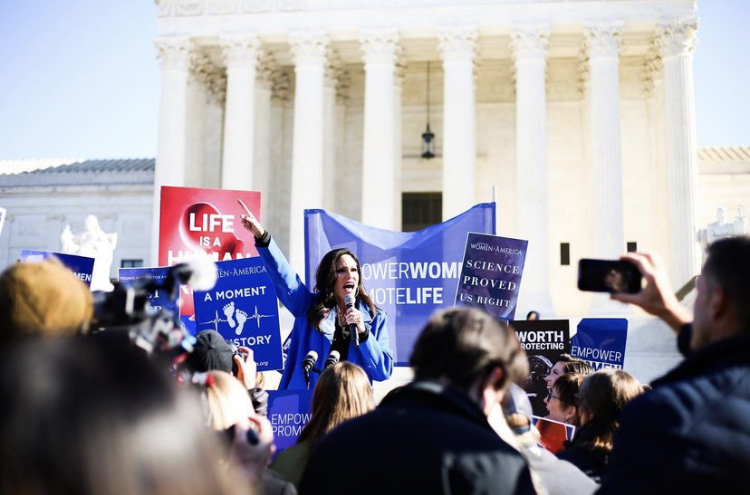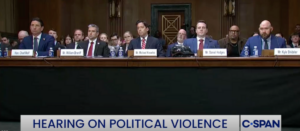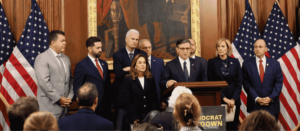On June 24, 2022, Supreme Court Justice Samuel Alito delivered the majority opinion of the highest U.S. court, saying, “We hold that Roe and Casey must be overruled. The Constitution makes no reference to abortion, and no such right is implicitly protected by any constitutional provision …” Pro-life advocates embraced one another outside the Supreme Court building, elated that their fifty-year-long struggle had at last ended in a resounding victory. The infamous rulings of Roe v. Wade and Casey v. Planned Parenthood had finally been acknowledged as unconstitutional.
Yet the fight had only just begun. Regulations on the abortion industry had now been returned to the jurisdictional authority of state governments in the wake of Dobbs. Every pro-life advocate would now have to take the fight back to their home states. Protesting a culture of death in Washington, D.C., was one thing, while advocating for life in one’s own backyard quite another. While there have been both victories and losses at the state-level since the Dobbs decision, we remember that tremendous victory two years ago, a victory that came after 50 years of unwavering dedication to protecting life. We remember the joy felt knowing that a stronghold of abortion lay broken at the foundations of a nation built on life, liberty, and the pursuit of happiness. In the aftermath of Roe, it is every pro-life advocate’s responsibility to fight in their home states for the protection of the unborn.
Several questions present themselves in the face of a state-level battle. How should state governments regulate abortion? Is it compromising to accept a partial ban or is it a step in the right direction? Questions on the issue of abortion surround state legislators and citizens alike. Sen. James Lankford (R-Oklahoma) said it best when urging his fellow senators to vote on behalf of pro-life legislation: “We as Americans are trying to figure out the answer … It’s a fair conversation. When is a child a child? Or when are they not a child?” While there are many questions that confront Americans in the face of the Dobbs decision, it is imperative that we know what is true about the pro-life movement.
The first consideration lies in the Biblical Truth that undergirds the pro-life movement. Job 33:4 (ESV) says, “The Spirit of God has made me, and the breath of the Almighty gives me life.” Likewise, Psalm 100:3 (ESV) states, “Know that the Lord is God. It is He who made us, and we are His; we are His people, the sheep of His pasture.” Life comes from God alone. Who are we, as God’s creation, to take it without just cause? The Scriptures make evident that life is a gift from God and should be protected. It is important to note that the writers of the Constitution knew this and incorporated such principles into America’s foundations.
The Constitution must be read through the lens of the Declaration of Independence and in light of Scriptural influence. The Declaration famously reads, “We hold these truths to be self-evident, that all men are created equal, that they are endowed, by their Creator, with certain unalienable rights, that among these are life, liberty, and the pursuit of happiness.” The Declaration, as the frame of the Constitution, prefaces the Fourteenth Amendment, which states, “No State shall make or enforce any law which shall abridge the privileges or immunities of citizens of the United States; nor shall any State deprive any person of life, liberty, or property, without due process of law; nor deny to any person within its jurisdiction the equal protection of the laws.” The Constitution at its core, therefore, recognizes personhood and the right to life, both of which are derived from the Scriptures and enumerated in the Declaration.
How, then, should the pro-life movement move forward after the overturn of Roe? The answer is far from simple. It is imperative that states comply with the national precedent of the Constitution, which safeguards life. What about partial bans? A person’s value and their right to life should certainly not be determined by their age. Truthfully, there are many political hurdles in the way of passing abortion regulations. It is, therefore, best that lawmakers pass the most favorable protections possible and seek every opportunity to promote pro-life values. While a total elimination of abortion is the goal, legislation passed that partially prohibits abortion is assuredly a step in the right direction.
So, after Dobbs v. Jackson, how do we move forward? We do everything we can to protect as many lives as possible at every level of government. There are two pieces of legislation being introduced this month that Concerned Women for America Legislative Action Committee (CWALAC) has endorsed that need our attention.
The first is a Senate resolution sponsored by Sen. Marco Rubio (R-Florida) commemorating the second anniversary of the Dobbs ruling. The resolution states, “Whereas the Supreme Court of the United States committed a grave injustice in Roe v. Wade, 410 U.S. 113 (1973), by inventing a constitutional right to abortion, thereby denying a class of innocent people their right to life … the Senate commemorates 2 years since the ruling of the Supreme Court of the United States in Dobbs v. Jackson Women’s Health Organization, 142 S. Ct. 2228 (2022).” In other words, the Senate’s resolution makes clear that every piece of subsequent legislation, both state and federal, must follow in the spirit of the Dobbs decision. This means that it must have the best interest of the unborn in mind. This is simple, yet profound. Such a perspective supersedes the qualms and disagreements of lawmakers, the varied sentiments of citizens, and the personal decisions of every individual. What is important is that the most vulnerable in society have their lives advocated for and protected by the law. May Christians and pro-life advocates alike pray for such a change in perspective for all lawmakers.
The second piece of legislation is the Conscience Protection Act sponsored by Sen. James Lankford (R-Oklahoma). Lankford’s bill would prevent any level of government from penalizing or discriminating against a health care provider who refuses to facilitate, perform, participate in abortion in any way.
So, what can this bill teach us about the way forward after Dobbs? The Conscience Protection Act teaches us to keep the bigger picture in mind. The bigger picture is the protection of the lives of unborn babies, even in the face of opposition. Lankford’s bill reminds us of the bigger picture by providing protection to those who have been attacked for their defense of the unborn and allows the pro-life community to exercise their capabilities where it counts. Even in the face of opposition, like the Supreme Court ruling on June 13 of this year (Food and Drug Administration v. Alliance for Hippocratic Medicine) that procedurally allowed FDA’s relaxed restrictions on the use of mifepristone to continue, we must always remind ourselves of the bigger picture.
As we remember the victory of June 24, 2022, and reflect on the milestone of Roe’s demise, it is critical that we contemplate God’s gift of life to all of us, its constitutional protection, and the perspectives we ought to take as we fight for the unborn at the state level. May the commemoration of Dobbs provoke us to fight for the helpless, to be concerned for the littlest among us, and to stop at nothing until abortion is eradicated.






